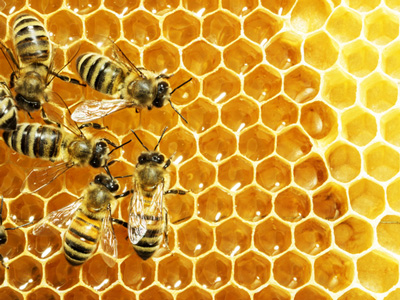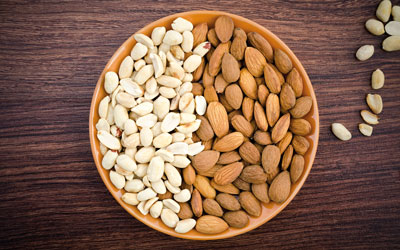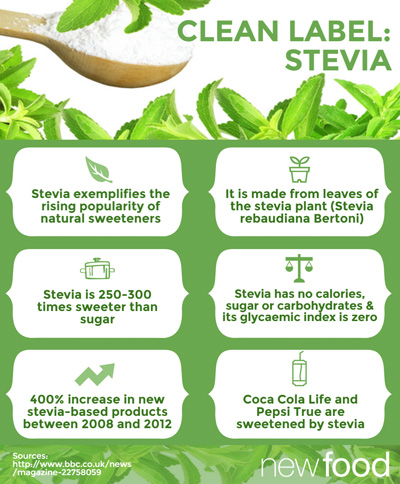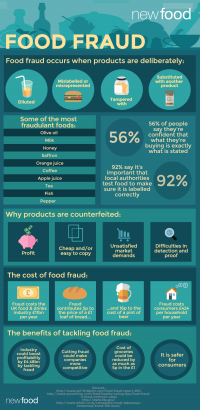The top 10 things 2016 taught us
- Like
- Digg
- Del
- Tumblr
- VKontakte
- Buffer
- Love This
- Odnoklassniki
- Meneame
- Blogger
- Amazon
- Yahoo Mail
- Gmail
- AOL
- Newsvine
- HackerNews
- Evernote
- MySpace
- Mail.ru
- Viadeo
- Line
- Comments
- Yummly
- SMS
- Viber
- Telegram
- Subscribe
- Skype
- Facebook Messenger
- Kakao
- LiveJournal
- Yammer
- Edgar
- Fintel
- Mix
- Instapaper
- Copy Link
Posted: 15 December 2016 | Roy Manuell, Digital Editor | 1 comment
We’ve identified the top 10 things that the last twelve months taught us. Here are our highlights (or lowlights dependent on your viewpoint) from 2016…


It’s recap season as reviewers everywhere are taking a look back at the previous 12 months in an attempt to summarise, categorise and prescribe some sense of order to the chaotic, eventful and inarguably unpredictable year that is about to pass.
The food manufacturing and processing industry saw some significant changes. In the news, the Mondelez -Hershey saga came to an unsatisfactory conclusion as the manufacturer of Oreo cookies and owner of Cadbury walked away from the deal in August after an improved $23 billion cash-and-stock bid was turned down by Hershey. Elsewhere and more recently, we’ve seen the return of the bird flu scare and E. coli O157 on both sides of the Atlantic.
While clearly key stories, they haven’t quite made our elite list…
___________________________________________
Here at New Food, we’ve identified the top 10 things that the last twelve months taught us. Here are our highlights (or lowlights dependent on your viewpoint) from 2016. Enjoy.
Trump card
Inevitably, Donald Trump is going to get a mention in almost every review of 2016 so we thought we might as well get the President-elect story out of the way.
We concluded back in November that while it is near-impossible to accurately estimate the impact of Donald Trump on the US food and beverage industry due to the fact that his campaign was largely run on rhetoric as opposed to clearly-defined policy, his presidency is likely to bring significant deregulation to the US industry. In theory, this would benefit farmers and agriculture professionals. Trump’s vocal repudiation of the previous administration’s granting of an enhanced role to the Food and Drug Administration embodied by policies such as the Food Safety Modernisation Act, introduced in 2015, serves to suggest a move away from “unjustified regulations” as he put it on the campaign trail.


Elsewhere, while Trump’s views on the environment could potentially threaten food security and sustainability and there are question marks over his stance on health and nutrition, 2017 will bring the only real clarity regarding the extent to which the US sector will change as a result of his election to the White House. Read our full post-election analysis here.
Uni-leaver: Brexit and beyond
The logical follow-on to Trump feels like it should be Brexit. The viral story that hit the UK in the wake of July’s referendum was that of Tesco momentarily pulling all Unilever products from its shelves amid a row over post-leave-vote pricing. The threat to the UK’s idiosyncratic love of yeasty Marmite caused the biggest outrage catalysing memes and causing the hashtag #Unileaver to trend on Twitter. Other products threatened were Ben & Jerry’s ice cream, Pot Noodles, Persil and Dove soap. Fortunately for worry-struck Brits, the dispute was efficiently resolved and the UK’s largest supermarket emerged with the bigger smile on their face out of the chaos.


On a more general note, Brexit, much like Trump, spells uncertainty for the sector. As part of the EU, the UK was previously obliged to accept and implement legislation required by the EU with only limited national derogation, particularly with respect to food law. In the future, the UK will still have to comply with EU regulations when exporting there. For now the 95% of UK food law currently in the form of EU regulations will remain as such. Much like with the US and their President-elect, the new year will bring better clues as to what precisely will change…
Regulation, regulation, regulation
Furthermore, in light of Brexit, regulation has and will play a significant role in both 2016 and 2017. With EU regulation essentially determining a lot of how the UK and all member nations process and manufacture food products, we heard from expert Italian lawyer back in November on the impending review of Regulation (EC) No 882/2004 on official controls performed to ensure the verification of compliance with feed and food law, animal health and animal welfare rules. In essence, the focus on sanctions and the correct definition of food fraud will need to be strongly considered if we are to truly tackle the issue of food fraud in Europe. Perhaps already making developments in the US in this respect, New Food reported on an update in August to the American Food Fraud Database, though with Trump in the White House arguing for deregulation, we may see a reversal of the FDA’s tightening of food safety regulation stateside.


In the wake of Brexit, many have called for a stronger move towards regulating the use of antibiotics as it is thought that EU law does not go far enough and we also witnessed a statement from the Department of Health suggesting that a new policy, permitted by Brexit, might now allow for teaspoons of salt and sugar to be displayed on the front of packaging once Article 50 is invoked to give an empirical, visual quality to dissuasive measures.
Certainly, regulation – be it the explicit anti-regulatory approach of Trump or the potential rethinking of food law in Europe – has made waves in 2016. Watch this space.
Sweet teeth
Though building for a while, 2016 was the year where regulators and governments really began to begin to think and act on the sugar problem. Though it must be said that it seemed to be the multinationals that led the way from Fonterra reducing sugar content in their yogurt range to Tesco’s reduction in its own brand soft drinks as well as PepsiCo addressing the issue. The list is by no means exhaustive. The main argument raging in many nations however is whether or not fiscal measures should be imposed by governments around the world to curb sugar consumption; the controversy of the UK ‘sugar tax’ debate being a notable example.
Some economists argue that taxation might have a damaging effect on employment. On the other hand it is widely thought that a universal tax imposed on sugary drinks for example, would significantly deter consumers from purchasing unhealthy products. In any case, sugar’s contribution to the global obesity soon-to-be pandemic is undeniable and increasingly-worrying statistics emerged this year on the issue: China set to pass the 50 million mark for children (5-18 years) classified as ‘obese’ by 2025 according to projections by the World Obesity Federation.
Another solution to this now-global problem is the emerging sweeteners trend and New Food heard exclusively back in August from the International Stevia Council about its benefits and current use as well as producing our own visual summary of the natural sweetener which you can see below:
How important a role will sweeteners play in 2017? We believe a rather significant one…
Sustainability
Much like the sugar consumption in several OECD nations, our approach to the food production and consumption life cycle is becoming less and less sustainable and the agricultural industry has particularly come under fire. Documentaries such as Leonardo Di Caprio’s ‘Before the Flood’ and ‘Cowspiracy’ have underlined the unsustainable energy and water consumption level inherent to the farming of livestock and production of beef as evidenced in this article by the Guardian and in the globalised information economy we now live in, more and more consumers are becoming aware of this issue. This in turn has catalysed the growth of veganism – 360% in a decade according to one source.


Agricultural practices are certainly shifting aided by developments in crop science and new technologies to maximise efficiency as articulated in an article by The College of Agricultural, Consumer and Environmental Sciences (ACES) that we covered in September. In order to preserve food security and ensure that the world has enough, it seems increasingly evident that drastic measures will need to be taken and 2016 was certainly the year where the world began to sit up and take notice – the Paris Agreement the empirical example of this.
Let’s hope 2017 brings even greater progress. Let’s protect our beautiful planet.
Antibiotics
This year, New Food (unfortunately) made very good friends with the Alliance to Save Our Antibiotics. I say unfortunately as in while we are very thankful for their great world, in an ideal world we would not have had to cover so many stories regarding the routine misuse of antibiotics in farming. Validated in a written letter by fifteen senior medics to the UK government, the resistance humans are building up to antibiotics due to their misuse in the farming industry is estimated by The Alliance to kill one person every three seconds by 2050.
While it is difficult to estimate the precise number, the sheer number of MRSA and E.coli scares this year linked to the misuse of antibiotics in the food industry (around the world) is cause for concern.
Saying No-vak to gluten
The multi-million pound ‘gluten-free’ industry has been snowballing for a while, perhaps since Novak Djokovic’s book ‘Serve to Win‘ came out in 2013, but 2016 was the year in which the trend really gained traction – a recent study by Transparency Market Research projecting the sector to reach $4.89 billion by 2021, growing at a CAGR of 7.7 percent. Earlier in the year, we considered exciting new ranges from gluten-free sauces to bread and cake mixes.


New Food decided to investigate further in December to find out whether or not a gluten-free diet can rightfully and scientifically claim to be the health diet trend at present with an estimated 15% of UK adults and an astonishing 29% of US adults currently avoiding gluten. To do so we asked an NHS professional to give us her view on whether gluten-free is actually all just one big marketing myth.
Bee-have
On a lighter note, as is the case every year, we feted National Honey Bee Day in celebration of one the world’s most important and beloved species.
It’s not all sweet news however for as you might know the honey bee, a key pollinator, is severely threatened – be it from pesticide use in the agriculture industry be it from the unprecedented arrival of the Asian hornet in the UK’s unfortunate case (the Asian hornet routinely severing the head of its European adversary and eating it whole). The threat has since been contained.


Since 2006, North American migratory beekeepers have seen an annual 30 percent to 90 percent loss in their colonies; non-migratory beekeepers noted an annual loss of over 50 percent. according to one source.
Let’s help the honey bee together.
Allergens
Allergens have been an ongoing issue for what seems like forever. In 2016 however, New Food discovered Nima. Nima, an innovative Californian startup, has developed a technology that will allow consumers to test products for gluten whilst on the move. So while the gluten-free trend may or may not be a marketing ploy (coeliac sufferers aside), those who depend on the accuracy of written warning about the presence of certain substances in their food – be it in a restaurant or on the supermarket shelf – can now relax as Nima have innovated a portable solution.


As stated, allergens are certainly a key issue and earlier in the year Rene’s article provided us with a wonderful analysis of the everyday effect of allergens on the ordinary person. A food industry professional, Rene also lives with someone who has multiple allergies, food intolerance as well as coeliac disease and understands the impact of allergens in the household and the importance of precautionary measures needed in product manufacturing when working with allergens.
Food fraud
… and the topic of allergens thus leads us nicely onto our final pick from 2016 and something we feel will further define 2017. Back in Issue #4 of New Food in August, Valerie Tear, a leading food safety consultant, detailed how fraudulent and improper food practices can have disastrous and often deadly impact on the individual. Food fraud has unequivocally become a serious global issue with just 56% of consumers saying they are confident when making a purchase that they are not being misled by labelling according to one source. For a full visual explanation of the phenomenon, New Food put together an infographic on food fraud which you can see here.
New technologies and techniques are emerging to detect and prevent food fraud from calls for a regulatory reformation to the weird and wonderful as claimed by the University of Southampton that jellyfish might have a role to play, food fraud was everywhere…
And so completes our roundup of 2016. A year fraught with surprise, shock, disappointment and elation, the food and beverage industry has certainly seen significant changes and will continue to shift be it as a result of political or environmental circumstance, 2017 is sure to be an exciting and equally surprising year.
Look our for our predictions for 2017, coming up next week.
Related topics
Allergens, Food Fraud, Free From, Ingredients, Regulation & Legislation, Sustainability, Trade & Economy










Your articles continue to bring food issues into perspective. Looking forward to more interesting articles in 2017. Thank you.